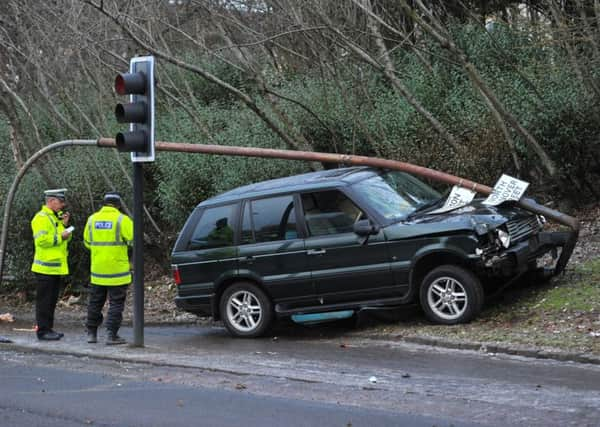Range Rover Glasgow death ruling to be reviewed


Mhairi Convy, 18, and Laura Stewart, 20, were walking in Glasgow’s North Hanover Street on December 17 2010 when a Range Rover apparently lost control, mounted the kerb and hit them.
William Payne, who was 50 at the time of the crash, appeared at Glasgow Sheriff Court in November 2012 accused of causing death by driving while uninsured, but charges against him were dropped the following November.
Advertisement
Hide AdAdvertisement
Hide AdA fatal accident inquiry (FAI) found that five “reasonable precautions” could have prevented the accident, which happened after Mr Payne suffered a “vasovagal episode” and temporarily lost consciousness, losing control of the vehicle.
The inquiry, the results of which were published in November 2014, heard that in the three years before the fatal accident Mr Payne had six blackouts.
The families of the two young women today met with Lesley Thomson QC, Scotland’s Solicitor General, and formally asked her to review the Crown Office and Procurator Fiscal Service (COPFS) decision not to prosecute Mr Payne.
It comes on the day that the COPFS strengthened victims’ rights with the introduction of the right in law for a victim to ask for a review of a decision by the Crown not to prosecute their case, for decisions made on or after July 1 this year.
A Crown Office spokesman said: “After an extensive investigation of all the evidence, including the evidence led at the FAI, the Crown decision in this case was that there was insufficient evidence in law to raise criminal proceedings for the deaths of two innocent pedestrians against the driver of the vehicle involved.
“A meeting with the Convy and Stewart families on the day that new ‘right to review’ legislation came into force in Scotland was helpful in understanding their questions and concerns around this tragic case.
“While the legislation applies only to cases from July 1 2015, in the spirit of that new legislation the Crown Office told the families at the meeting this morning that the decision not to prosecute will be reviewed.”
The review will look at how that decision was made and what, if anything, may have been done differently.
Advertisement
Hide AdAdvertisement
Hide AdThe Crown said that it remains, as a matter of law, that there can be no prosecution in this case and that the family are aware of that legal position.
Fraser Simpson, partner at Digby Brown Solicitors, who represents the families, said: “The FAI could not have been clearer in its findings.
“It concluded the two deaths could and should have been prevented.
“It has always been immensely difficult for the families to understand the time it took to make the decision and the decision not to prosecute.
“Victims should be at the centre of investigations into devastating incidents such as the one that resulted in Mhairi and Laura’s deaths.
“Scotland has finally caught up with England and introduced a right for victims to seek a review of decisions not to prosecute.
“The Convy and Stewart families are simply asking that senior law officers review the case and explain why their daughters were denied justice.
“The hundreds of requests for reviews which have been upheld in England show the very real difference that such a scheme can make in giving those affected by tragedy access to answers and justice.”
Advertisement
Hide AdAdvertisement
Hide AdThe “reasonable precautions” outlined in the FAI determination included for Mr Payne to have notified the Driver and Vehicle Licensing Agency (DVLA) about his blackouts after his loss of consciousness on June 5 2009, and for him to have attended the appointment made for him with a consultant at Stobhill Hospital, Glasgow, on September 17 that year for further examination about blackouts.